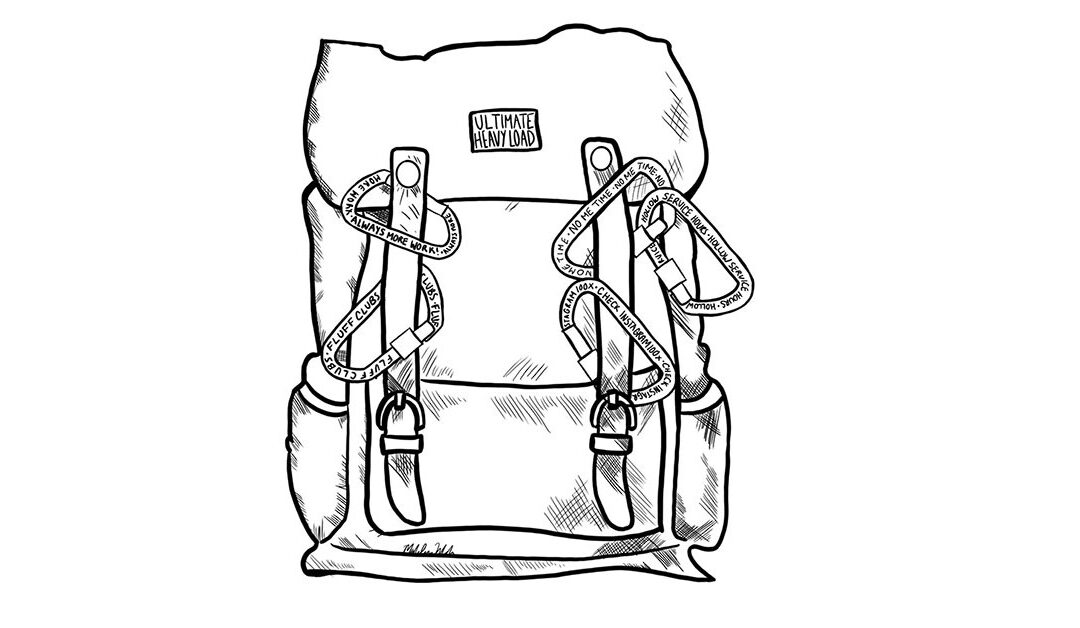
by College Goals
Students who attend boarding school get to live, learn, and thrive with motivated peers from around the world, supported by compassionate and dedicated faculty who serve as teachers, coaches, and dorm parents. At boarding school, students wake up each morning in a community buzzing with energy and know they are part of something special and unique.
LIVE
Life at boarding school is exciting and full of possibilities. Boarding school students report spending more time engaging with their communities and exploring their passions than students at private day schools and public schools[1]. Since students live and work alongside each other and the faculty every day, from the stage to the studio to the field, students have nearly endless options for immersing themselves in their interests and discovering new ones.
Along the way, students form meaningful relationships with caring educators who offer inspiration, guidance, and motivation. Coaches, teachers, and dorm parents are committed to creating supportive, nurturing environments where students feel inspired to grow as learners, members of the community, and leaders. In fact, 77% of boarding school students say that boarding school gives them the opportunity to lead[2].
LEARN
Going to class at boarding school is inspiring. Not only do students learn from high-quality teachers, but students also report being surrounded by motivated peers, making the learning environment rich and rewarding. Students’ classmates are also their teammates, bandmates, and roommates — so the learning doesn’t stop at the classroom door. Exciting and engaging conversations happen in dorm common rooms, fueled by snacks made by dorm parents.
Students feel academically challenged at boarding school. Small class size and easy access to faculty outside of the academic day allow students individualized attention so that they can also feel supported on their rigorous academic journeys. Teachers meet with students one-on-one to review everything from math concepts to essay writing techniques. At boarding school, students are both challenged and supported and feel intellectually inspired and academically satisfied.
THRIVE
Ready to face the challenges of college and beyond, boarding school students are prepared to thrive in the world after high school. Living on campus, learning with motivated peers, and engaging in leadership opportunities are just a few of the ways that boarding school sets students up for success. A majority of boarding school students report feeling prepared to succeed in college.
When asked if they would go to boarding school all over again, 90% of graduates said yes! At boarding school, students develop self-motivation, independence, and the ability to think critically and creatively. These skills not only help with college readiness, but they also set the foundation for career success later in life. Boarding school — and all that it has to offer — is an experience that lasts for a lifetime.
[1] Begin the Adventure of Your Life, © Copyright 2009-2019 The Association of Boarding Schools
[2] Begin the Adventure of Your Life, © Copyright 2009-2019 The Association of Boarding Schools[/vc_column_text][/vc_column][/vc_row]

by College Goals
While I was walking through the snow (yes … we still get snow in March in Rhode Island) with one of my best friends a few weeks ago, she began telling me about a coaching framework she’s been working on—centered around a backpack. My friend Brountas (I call her by her last name … something that stuck during our college years together) owns an executive coaching business (https://www.linkedin.com/in/jen-brountas-16b731/). She uses the backpack analogy as a way to help her clients prioritize the things occupying their headspace. A backpack is a useful tool, but it has a limited capacity and a tendency to collect stuff that weighs you down. I couldn’t help but think that her framework and analogy could benefit my students as they transition into a post-pandemic world.
Brountas described her backpack idea as a way to talk about what feels awful and what feels good in our lives, and the consequences of letting the best parts of ourselves get lost in the load. I think a lot of my students would agree that the weight of junior and senior year of high school can “feel awful and overwhelming ” just like the weight of a too-heavy backpack. Everything about these later years of high school feels important … there is so much pressure to have just as heavy a backpack as everyone else, especially when thinking ahead to college. In fact, students often tend to “clip on” more responsibilities, like carabiners that create more weight on their shoulders.
“Think about what you miss and don’t miss” is a phrase I’ve heard many times over the course of the last year. I think most of us can quickly rattle off a few things we’ve missed throughout the pandemic and others we would happily toss out of our bags. It’s fun taking the time to reflect, but it’s much harder to actually leave some of your old life behind—to physically remove the weight or change the way you engage with the items that gnaw at your side. This spring, don’t just think about what’s next; instead, take action and make the leap forward to make your high school years the best they can be. A “big” bag full of all the right “things” doesn’t need to be heavy.
Stop & Unpack:
What “Rona” (as my students like to call the virus) did was force you to stop. It forced you to put aside your heavy load for a while. As Brountas says, “Feel the release. Step away from the bag and be conscious of what’s going on so that you can have a fresh perspective.” Before you sling the heavy bag back on your shoulders, I encourage you to unpack each item and sift out the “trash.” Is sitting on the bench at your team’s games getting you down? Maybe let that go and pick up something that makes you feel lighter and better represents the person you’re becoming.
Sort:
Sort the commitments in your life into categories: activities, clubs, the classes you’ve signed up for, jobs, internships, projects, time for sleep, time with friends and family, etc. What means the most to you? What would you like to leave behind? This act of reprioritizing isn’t something you should be ashamed of, it’s something you’ll have to do for the rest of your life. You’re just setting new goals!
Repack:
What do you want to take with you from the pandemic? Did you learn new skills? Strengthen your work ethic and confidence? Include these intangibles with your other priorities and make sure you have enough space — the type of space you enjoyed in your life as your heavy commitments shut down this year.
Try It On:
How does it feel? Is it still heavy in one area? Uncomfortably rubbing your side? If so, be aware of the irritating item in there that might need some reshifting. Maybe you just need to look at it differently? Perhaps a slight adjustment, like taking on a different role, forming a study group, or asking friends to join you in an activity can help make it feel more comfortable in your bag.
As schools go back to in-person learning, let’s talk through your re-entry and what’s most important — so that you don’t tip over from too heavy a bag. I believe a strong college application is closely tied to the joy and personal growth that comes from making good choices, and as Brountas says, “Monitor your backpack’s framework: it should be powerful and effective but not overwhelming.” An ideal weight, without filling your bag to the brim, allows you to walk with confidence and more intentionality as you move through your days and put time into what matters most to you. [/vc_column_text][/vc_column][/vc_row]

by College Goals
A recent article by Verónica Leyva takes issue with students paying undue attention to their choice of majors when researching colleges. In Major Myths, Busted, she argues instead for approaching the college search with an open mind, agnostic about any one path towards a degree. There are, after all, countless pathways to many careers, and colleges tend to be more interested in students who are motivated to learn than those narrowly focused on a major.
I think that Ms. Leyva’s arguments are absolutely sound and we should encourage high school students to identify their academic interest – a desire to engage with certain ideas or questions or modes of learning – and not simply a prospective major – an academic basket of courses set by faculty in the field to enable students to reach towards mastery in one discipline.
To the reasons why high school students should not fixate only on their prospective major, I would add the fact that they will likely change their minds anyway! Little point to researching only colleges with outstanding programs in Astrophysics if in the end you might opt to major in Anthropology instead! (I remember fondly a freshman advisee of mine at Brown who came set on studying Physics, before cycling through Philosophy and graduating as a Music major!) As Homer Simpson reminded Lisa, there is a time and a place for everything and it is called college – a time to try new ideas well beyond the narrow prescriptions of high school and challenge your mind beyond your own expectations. And most high school students are so trained to the narrow “boxes” of five core academic disciplines that they have little concept of how those translate into the 100 or more majors of a typical liberal arts university anyway!
There are good reasons for our current pushback against the tyranny of the major in students’ perception of where they should go to college and why. Many counselors have sat with students who, in months past, had lit up as they talked about their passion for the study of history or for the exploration of their favorite solar system. But then college admission comes into play, and suddenly they fixate on applying for the hot major du jour – computer science, chemical engineering, data science. This in spite of the work of economists like Doug Weber, who has shown that while right out of college STEM fields might yield more professional success, they do not inevitably pay better when measured by lifetime earnings.
And yet, having said all this, after twenty years as a college and academic advisor, I have also come to doubt how far we should go in the opposite direction, towards encouraging high school students to ditch all consideration of prospective majors. In part, this is because of the admission process itself (as I noted in a recent post). Majors are the bureaucratic building blocks of an undergraduate degree. Even the majority of liberal arts colleges that allow students to defer declaring a major for a year or two, still ask about intended majors in their applications. A college where the Environmental Studies department has just expanded might well want to make sure that those professors have a gratifyingly large number of prospective majors; and a college where the Classics faculty takes an interest in admission, might well take note of exceptional young Latin scholars.
Moreover, having students think about prospective majors is not at odds with having them identify exciting intellectual reasons for going to college. In fact, seeing how their intellectual interests connect with a particular academic discipline can help give teenagers a scaffolding with which to explore the things they find curious and exciting. I remember, when I first went to university eons ago, how validating it was to realize that people who were experts in the things I was curious about had thought those mattered enough to gather a corpus of knowledge about them and call it a History major! The practitioners of an academic discipline also use their own linguistic conventions to express their questions and concerns – and how liberating for young people to gain insight into that language in order to express their own ideas!
Ultimately though, my point is simply that an American liberal arts education is an extraordinary way of thinking about one’s learning, and students should look at the exciting range of possibilities it offers them, rather than cast around for a narrow academic box to climb into. But college is also not summer camp, and a conversation about majors might be another way to encourage high school students to view their learning with an equally important and exciting search for rigor and intellectual depth.[/vc_column_text][/vc_column][/vc_row]

by College Goals
A liberal arts education assumes that students do not commit to any course of study before they are ready to do so. While there are several courses of study, such as engineering and art, where students do apply to a specific course of study, liberal arts applicants to American institutions will at most be asked to state an academic interest. In fact, many colleges require students to declare a major – such as mathematics, economics or sociology – only at the end of sophomore (2nd) year.
Admitting students with little reference to their majors recognizes the fact that they will change their minds as they discover new ideas and new interests. And liberal arts colleges think this is a really good idea! They want students to roam broadly through an interdisciplinary reservoir of knowledge, finding different lenses through which to look at questions that interest them.
It is easy though to confuse this opportunity to explore, with an academic drifting that lacks rigor and discipline. Many college applicants check the box that says they are undecided about an intended major because they are genuinely not ready to commit to a course of study. But others do so because they fail to see that going to college is ultimately an academic choice, not a simple rite of passage, and they are reluctant to think too deeply about what they hope to achieve there. It is a bit like embarking on a trip without having wasted too much thought on either the route or the destination!
More pragmatically, when you apply to selective liberal arts colleges without any thought about your academic direction, you weaken your application. At the very least it makes it harder to give a strong answer when, for example, Cornell asks you “about the areas of study you are excited to explore, and specifically why you wish to pursue them in our College.” Or when you have to “describe how you plan to pursue your academic interests and why you want to explore them at USC specifically.”
Thinking about your major before you apply has other consequences for your application as well. Your chances of admission will not improve because you checked Biology rather than Sociology. But in your explanation of that choice, you give a college the opportunity to gauge your “intellectual vitality.” Compare a student who writes of an interest in how human behavior is conditioned by culture, with one who wants to study Psychology “because my friends always ask me for advice.” Or compare one who limply expresses an interest in Mathematics “because I am good at it,” with a student describing the beauty of Mandelbrot sets. Perhaps a student has in fact been motivated to study Sociology because “I am a social person,” but her answer seems superficial and thoughtless at best, and simply not very smart at worst!
If you wish to persuade a college that you have intellectual depth and curiosity, you need to support your claim with action. Reading, learning from a part-time job, participating in research over the summer, and even engaging with your teachers beyond what a good grade requires are all good ways to develop your academic narrative. And when you research colleges – size, location, clubs – also make time to contemplate, with excitement and anticipation, the academic opportunities that will be at the heart of your college experience.[/vc_column_text][/vc_column][/vc_row]

by College Goals
My husband and I live on a college campus where he is a professor. Over the years we have spent many entertaining moments watching families of prospective students doing the college visit – teenagers lagging behind pretending they do not know their parents, mothers excited about the grand adventure but fretting about the imminent pain of rejection, fathers equally enthusiastic but wondering if the place really warrants that exorbitant price tag. It ceased to be quite so amusing when we became one of those families ourselves!
College admissions present parents with difficult ethical, social and educational choices. We want our children to enjoy the adventure, act with integrity, feel good about the outcome, and be launched into successful and empowered adulthood under their own steam. Yet, we also witness the avalanche of requirements bearing down on them and we listen to other parents stressing about declining admit rates and soaring college expectations. In the end, many parents feel like they need to choose between allowing their teenagers the space to forge their own way to college or, given the stress and complexities of the process, usurping their child’s ability and right to retain ownership of it. The road to helicopter parenting is, like the one to hell, paved with the best of intentions!
There are no clear or easy answers to managing the application process well as a parent. But here are a few tips towards being appropriately and productively involved in your child’s college application:
- You are their foremost model for how to deal with the stress, disappointments and joys of this process. It is not necessarily what you say but what you do that will likely have the greatest impact on their behavior and perspective.
- Help your child develop the tools to evaluate colleges sensibly and thoughtfully – if you cannot move your own thinking beyond superficialities of rank and status, it will be hard for your child to engage constructively with the idea of a good college “fit.” If they don’t understand that what they do at college matters more than the rank of the school they got into, you might spend four more years worrying about the fact that being a mediocre or unhappy student at a highly ranked institution will probably not do for their futures what you had hoped it would! Remind your child – and yourself – that the college application process is only the opening act to the more important drama of succeeding at college.
- The only thing perhaps more counterproductive these days than a helicoptering parent, is a snowploughing one! To be successful, students need self-motivation, independence and self-reliance in the absence of a parent herding them along. Admission officers always note at information sessions how parents ask all the questions. Resist! Give your child the opportunity – and the responsibility – to ask their own questions, make their own calls, and organize their own calendars.
- Help set up campus visits, and then work at making these pleasant and instructive experiences for all. This requires that you bite your tongue when they express opinions that are thoughtless or even silly; keep your temper when they announce on arrival that this is not a good place for them; and listen for the subtext when they are having trouble articulating their dreams and anxieties. And remember to enjoy what may be your last extended trip with your teenager!
- Overcome your reluctance to talk to them about money. College is expensive and there are few moments sadder than when families realize that getting admitted to a dream school is not enough to make the dream come true. This can be avoided if your family talks about what is affordable or beyond your means, and think about how to put the unattainable within reach. The financial aid process is largely in the hands of parents, so be organized about it. Do your taxes early, inform yourselves about requirements, and complete the applications in a timely manner.
- Step away from that college essay! It is not yours to write, and in forgetting that fact you are not doing your child any favors. Essays written by parents often sound like it – smoothly written, adult in tone, and simply not very interesting. And if you do not model ethical behavior, will your child know that at college submitting another’s work as their own will get them ejected? And, more importantly, how can they have confidence in their own ideas when you show them that you don’t? But if they do ask you for essay ideas or comments, savor their trust in you and be supportive, thoughtful and gently honest.
Above all, help your teenagers develop a healthy perspective on this process by reminding them that your unconditional love does not depend on ivy growing on their colleges’ walls! As parents, we assume they know this. Yet this is a moment most likely to test their confidence and sense of self. But it is also a great opportunity for you to put finishing touches to the job you started 18 years earlier, and to send them off into the world knowing that whatever the outcome of their college application, you value them.[/vc_column_text][/vc_column][/vc_row]





